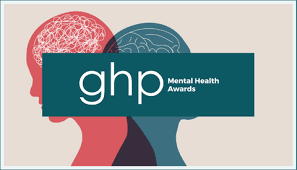Health Information Week is a national, multi-sector campaign to promote high quality information, the aim of this blog is to impact on people’s ability to stay healthy, manage illnesses effectively and take steps towards improving their mental health.
Emotional Resilience and Mental Health
Managing illness and our mental health can be challenging, as a patient, parent or carer of a loved one, we go through peaks and troughs of anger, frustration, denial, acceptance, worry, down days and nights, pain, fatigue, suffering, emotional upset, sadness, questioning, and a form of entitlement to be well. It is somewhat impossible to clear adversity out of our lives and it is okay to feel this roller coaster of emotions, so the more we can nurture our mind-set, self-esteem and learn how to become emotionally resilient.
When we are faced with challenges or difficulties it may not be easy to get in touch with resilience as the feeling of being overwhelmed takes over. Emotional resilience is about taking steps to evaluate your own well-being to deal with pressure, taking ownership of what is happening right now and how to reduce the impact that any stress has on you. It is not only about bouncing back but also how to adapt if challenging circumstances comes our way and keeping mentally well and balanced during those times.
It seems simple, but looking after our physical health, getting enough sleep and rest, looking at ways of boosting our immune system and diet, getting some form of exercise or movement and staying hydrated will put us in a better place to cope. Trying to not worry about the past or predict the future, just living for the day and taking one day at a time is often a good place to start.
Why sleep and relaxation are so important for our mental health
As a wellness practitioner I have been teaching relaxation, mindfulness and meditation techniques for many years. While we sleep, our bodies don’t shut down; our brains, internal organs and other processes are hard at work affecting growth and stress hormones, our immune system, appetite, breathing, blood pressure and cardiovascular health.
We tend to take sleep for granted, we sleep so the body and mind are forced to stop and undertake internal maintenance. It services the body on a molecular level both mentally and physically, sleep affects our energy balance, as well as intellectual function, alertness and mood and is crucial to our well-being.
Although our brains work automatically, it is our own innate ability to regulate them that determines how well we cope with pressure, rational and irrational thoughts, work through our tasks and so much more. If our environment and lifestyle cause an overuse or underuse of a certain brain function it can produce many negative effects such as insomnia, anger, stress, learning difficulties or anxiety. Every brain function serves a purpose to help us cope with a variety of situations. I have cared for family members with long term health issues, a friend with a terminal illness and spent time running meditation circles with other carers and I know how important it is to keep your own battery topped up.
Brainwaves
The ability to relax depends on your brain wave state and some brainwave states, in order of lowest to highest frequency, are; delta, theta, alpha and beta. In order for the body to relax and sleep it has to travel through several different brainwave states to get from the highly alert beta stage to the deep, healing sleep of delta. Our brainwave state is a major factor in allowing us to switch off and go to sleep, which can be difficult for some of us at different stages of our life and can be affected by certain medication.
Each frequency, outlined below from lowest to highest, has its own set of characteristics representing a specific level of brain activity.
Delta is our slowest wave. It is experienced in deep, dreamless sleep and in deep meditation where our awareness is separated and is in the domain of our unconscious mind. Deep restorative sleep is important for regeneration and healing. Lower delta waves are produced during the ageing process and they also help regulate the cardiovascular and the digestive systems.
Theta is our light meditation and sleep brainwave state and includes our REM dream state. It is experienced, for a brief period, whilst dropping off to sleep and waking from deep sleep. Too little theta activity creates anxiety, poor emotional awareness and higher stress levels so meditation is worth trying. I would suggest starting with short meditations and working up gradually to longer ones. There is always something we can do to nourish our resilience, happiness and take care of ourselves. We may not be able to touch deep well-being but doing a simple meditation heals and nourishes.
Alpha is our deep relaxation state, the bridge between our conscious thinking and subconscious mind. Alpha waves help calm you down and promote feelings of deeper relaxation and contentment. Low levels of alpha waves can cause obsessive-compulsive disorders (OCD), anxiety and higher stress levels.
Beta brainwaves are associated with normal waking consciousness and acting in an alert, logical and critical state and help our effective functioning during the day but can also turn into stress, anxiety and restlessness. Beta waves cause worry when there is a high state of stress which can become overwhelmed during strenuous periods in life.
Nourishment, relaxation and sleep tips
• Research melatonin, magnesium and tryptophan boosting foods to aid sleep
• Rest without feeling guilty for at least 20 minutes
• Eat your evening meal early in the evening
• Switch off all screens at least 1hour before bedtime
• Avoid caffeine from around 1pm
• Use base note aromatherapy oils such as Lavender or Vetiver in your bath, diffuser, bed linen or pillow
• Try to go to bed and get up at the same time every day
• Install black-out blinds or lined curtains
• Use a valerian or chamomile tea
• Play relaxing music or sounds of the ocean
• Use natural fabric bedding
• Take some sort of exercise or movement each day
• Regulate the amount of moisture in the room by putting a small bowl of water in the bedroom
• Don’t feel bad saying no
• Try and regulate the room temperature to 16 degrees Celsius (optimum sleeping temperature)
• Remove anything that has no business in a sleeping environment
• Listen to a podcast or audio book
• Ask for help and support
• Read, listen to music, enjoy crafting & jigsaws
• Use a meditation or deep breathing techniques to lower brainwaves to induce relaxation
(www.gaildonnan.com/meditations)
Gail Donnan is a published author of wellness books for adults and children. She is the founder of The Mindfulspace Wellbeing Company (health studios and training academy), she is part of the writing team for Beauty Despite Cancer, along with being an ambassador for Psychologies magazine, she is a freelance wellness writer, a virtual presenter for Inspire Radio, has 25 years’ experience in the wellness industry and runs a private wellness practise in Ripon, North Yorkshire.
www.gaildonnan.com

